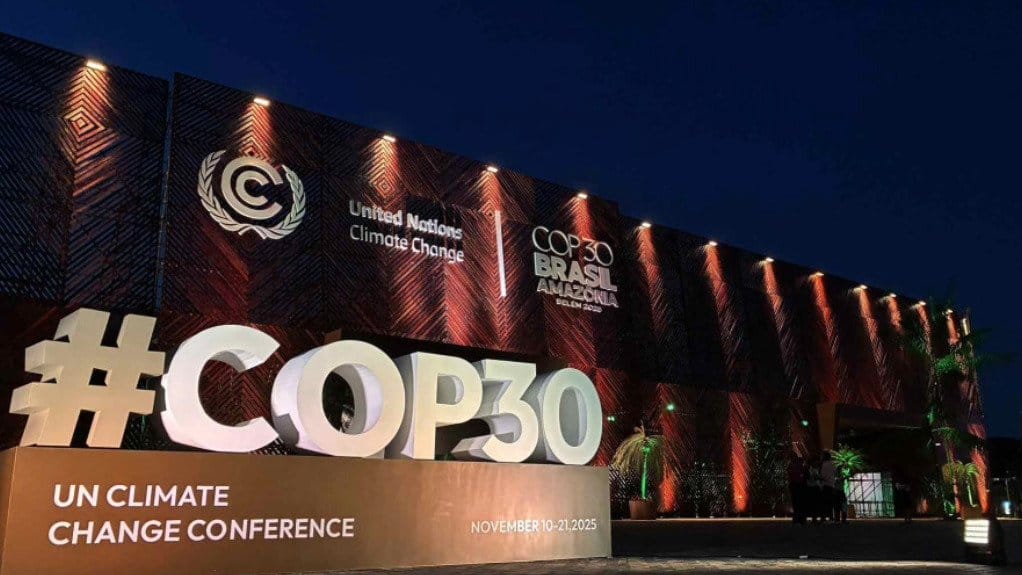COP30 Outcomes Draw Global Criticism as Scientists Warn Climate Action Remains Insufficient

• COP30 ended without a roadmap to phase out coal, oil and gas, despite support from more than 80 countries.
• Governments backed climate finance ambitions of $1.3 trillion annually for developing countries by 2035, alongside a pledge to triple adaptation finance to $300 billion per year.
• Brazil committed to develop voluntary science-based roadmaps on fossil fuel transition and deforestation, but these will sit outside the UN system.
Belém’s negotiating rooms empty with no fossil fuel roadmap
COP30 closed with a sense of unfinished work and deep frustration from scientists, European officials, and climate NGOs, after negotiators failed for a second consecutive year to include any reference to phasing out fossil fuels or to secure a binding plan to halt deforestation. What emerged instead was a patchwork of voluntary initiatives that many experts say does not match the accelerating pace of climate impacts or geopolitical fragmentation.
“COP30 has not been marked by groundbreaking agreements,” said Ottmar Edenhofer, head of the Potsdam Institute for Climate Impact Research (PIK). “Countries are making insufficient pledges, and even these commitments are not being honoured.”

Delegates spent two weeks debating adaptation, rainforest protection, climate finance and cooperation frameworks. Yet the most politically charged topic — fossil fuels — stalled again. Claudia Kemfert of the German economic institute DIW called the outcome “disappointing,” adding that the talks ended “without a roadmap for phasing out coal, oil and gas,” despite broad support from a coalition of more than 80 states.

European officials lament missed opportunities
German ministers were blunt in their assessments. Environment minister Carsten Schneider said the conference “was good in terms of implementation, but not good enough in terms of the outcome of the negotiations,” adding that resistance from the “old, fossil fuel-based world” blocked a binding fossil fuel roadmap.
Development minister Reem Alabali Radovan said progress on adaptation was also weaker than expected: “The agreements on adapting to the consequences of the climate crisis fall short of what we had hoped for and fought for.”

The meeting coincided with the tenth anniversary of the Paris Agreement — a moment that should have catalysed stronger ambition. PIK’s Edenhofer argued that the negotiations still matter, even with slow progress. “Against the backdrop of a fragmented geopolitical international arena, a voluntary agreement was reached to discuss a roadmap for the fossil fuel phaseout,” added Dirk Messner, head of Germany’s environment agency UBA. “That is the silver lining and should not be underestimated.”

Scientists warn that the pace of action remains misaligned with reality
Researchers and NGOs were more direct. “The agreements do not in any way address the climate crisis and the countries most threatened by climate change. This is not the emergency mode that would be an adequate response to the crisis,” said Niklas Höhne of the New Climate Institute.

The Wuppertal Institute reached a similar conclusion, with researcher Wolfgang Obergassel saying that meeting the 1.5°C limit “would require switching to emergency mode.”
Climate NGO Germanwatch said momentum was lacking. “Unfortunately, the global climate conference is not generating the necessary momentum for faster emissions reductions and closing the ambition gaps for climate protection and financing,” said Petter Lydén, its head of international climate policy.
RELATED ARTICLE: COP30 sets $1.3 Trillion Climate Finance Goal but Delays Fossil Fuel Decision
Environmental Action Germany (DUH) criticised the diluted outcomes on forests and fossil fuels. “Measured against the requirements, the decisions to phase out fossil fuels and halt global deforestation fall short,” said director Sascha Müller-Kraenner.

Fossil fuel and deforestation battles shape the final hours
The tense final session revealed deep divides. More than 80 countries pushed for explicit fossil fuel language and a roadmap to transition away from coal, oil and gas. The EU, UK and several Latin American nations reportedly considered withholding support from the agreement unless the language was reinstated.
Deforestation proved similarly contentious. More than 90 countries supported a binding roadmap to halt and reverse forest loss. The final text recognised the need to address it but stopped short of enforceable commitments.
Brazil’s presidency offered a compromise: voluntary science-based roadmaps on fossil fuel transition and deforestation over the next year. These will sit outside the UN process.
UN Climate Change Executive Secretary Simon Stiell struck a cautiously optimistic tone. “Many countries wanted to move faster on fossil fuels, finance, and responding to spiraling climate disasters. I understand that frustration… But let’s not ignore how far this COP has moved us forward.”

Finance, just transition and trade see limited but notable gains
The conference endorsed the ambition to mobilise $1.3 trillion per year for developing countries by 2035, alongside an expectation for developed countries to triple adaptation finance to $300 billion annually. The agreement, however, lacks binding mechanisms to enforce these targets.
Delegates also adopted a new Just Transition Mechanism to support workers and communities as economies decarbonise. For the first time, trade was formally recognised as a thematic climate action area — a step reflecting the rising influence of carbon pricing, supply-chain standards and import policies on global competitiveness.
What executives and investors should take away
COP30’s outcome lays bare a widening gap between climate science and negotiated ambition. It reinforces that political resistance to fossil fuel phaseout remains entrenched, even as climate finance frameworks expand. For companies and investors, the direction of travel still points toward accelerating transition risks, stricter supply-chain requirements, and growing scrutiny of voluntary pledges.
The next year — when Brazil produces its science-based roadmaps — will shape both expectations and pressure ahead of COP31. The global significance is clear: in the absence of binding multilateral agreements, momentum will increasingly shift toward domestic policy, investor action, and trade-driven climate enforcement.
Follow ESG News on LinkedIn












